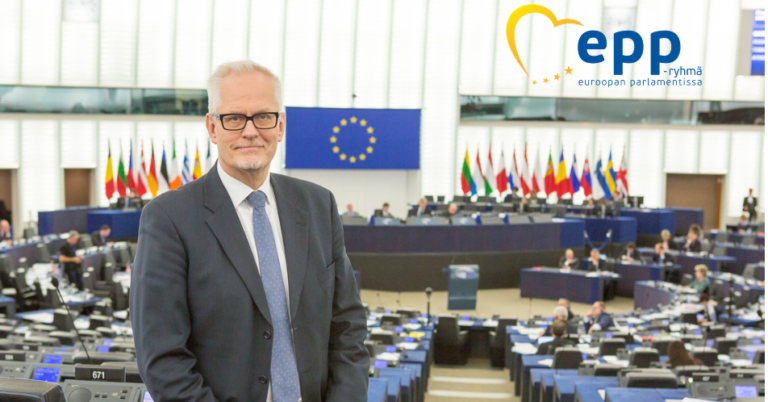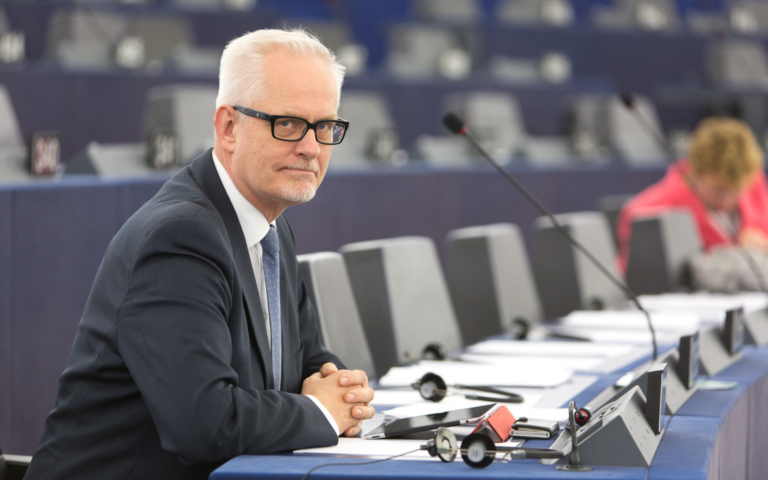EurActiv: 40 MEPs call for EU leaders to protect the news media sector
21.4.2020

An open letter to EU leaders from more than 40 MEPs calls for immediate actions to support Europe’s news media sector as it faces up to the sudden loss of advertising revenue caused by the COVID-19 crisis.
Read the full open letter from here >
Dear President von der Leyen, Dear President Sassoli, Dear President Michel, Dear Vice-president Jourova, Dear Commissioner Breton, Dear Commissioner Gabriel,
Free, independent and sufficiently funded media are instrumental for a functioning democracy and for ensuring that citizens are well informed throughout this crisis. Authoritative and reliable news sources and quality journalism is an antidote to disinformation. People are currently relying on trustworthy news media more than ever, as reflected by growing readership and audience numbers.
Media pluralism and diversity were already decreasing before the COVID-19 outbreak. Many media outlets are still deeply scarred by the previous global financial crisis and have been too slow to recover. Furthermore, advertising is now primarily concentrating online, with US-based platforms taking the lion’s share of the pie.
Unless we act immediately, the current COVID-19 fallout will lead to failures of entire news organisations, which, in turn, may result in disastrous consequences for entire societies. We are already witnessing wage cuts, layoffs of staff and we are receiving signals from the media sector about possible bankruptcies within months if not weeks.
It is the responsibility of the European Union and the member states to address the situation without hesitation. We propose these immediate actions:
- The Commission should launch an emergency fund for media and journalism — a NEWS grant programme in order to directly support news media and quality journalism. Special attention in all of the initiatives should be paid to local and regional media as well as for news media operating in small markets;
- To fund the above programme, the Commission should explore the viability of redirecting from the ongoing programmes some of the unused funding due to COVID-19 outbreak;
- The Commission should also consider other tailored support mechanisms such as providing young people with vouchers for subscriptions to news media, which would not only support the news media but also strengthen media literacy at the same time;
- The Commission and the European Parliament should redirect communication budgets to national news media instead of global online platforms;
- The European Parliament should explore possibilities for directing more support towards news media using pilot projects;
- We encourage governments of the member states to provide direct and indirect support to media.
Yours Sincerely,
Dace Melbārde (ECR); Ramona Strugariu (Renew Europe); Irena Joveva (Renew Europe); Michaela Šojdrová (EPP); Niklas Nienaß (Greens/EFA); Victor Negrescu (S&D); Urmas Paet (Renew Europe); Roberts Zīle (ECR); Sandra Kalniete (EPP); Juozas Olekas (S&D); Inese Vaidere (EPP); Lídia Pereira (EPP); Andris Ameriks (S&D); Andrus Ansip (Renew Europe); Radan Kanev (EPP); Ivars Ijabs (Renew Europe); Anna Cavazzini (Greens/EFA); Petra Kammerevert (S&D); Andrey Slabakov (ECR); Marisa Matias (GUE/NGL); José Gusmão (GUE/NGL); David Casa (EPP); Monica Semedo (Renew Europe); Vlad-Marius Botoș (Renew Europe); Magdalena Adamowicz (EPP); Morten Løkkegaard (Renew Europe); Viola von Cramon-Taubadel (Greens/EFA); Tanja Fajon (S&D); Isabel Santos (S&D); Elena Yoncheva (S&D); Grace O’Sullivan (Greens/EFA); Laurence Farreng (Renew Europe); Łukasz Kohut (S&D); Klemen Grošelj (Renew Europe); Petri Sarvamaa (EPP); Ernest Urtasun (Greens/EFA); Ioan-Rareş Bogdan (EPP); Maria de Graça Carvalho (EPP); Ernest Urtasun (Greens/EFA); Anna Júlia Donáth (Renew Europe); Javier Nart (Renew Europe); Antonio López-Istúriz White (EPP)



